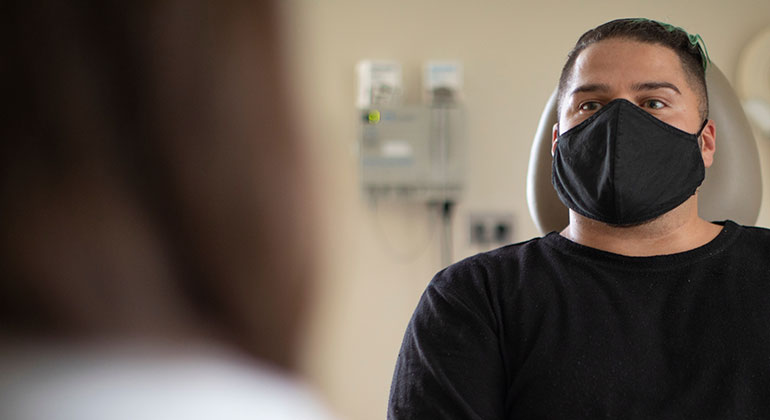
Bariatric Surgery-Weight Loss Surgery
Losing weight can be challenging. You may have tried professionally supervised diets, medications, and other approaches. If you haven’t found success, bariatric surgery might be an option to discuss with your doctor.
We use bariatric surgery, together with a healthy diet and exercise plan, to help with weight loss. The surgery reduces the size of the usable stomach, limits the number of food calories it can absorb, and alters the hormones made by the gastrointestinal tract, which reduces the feeling of hunger. In addition to long-term weight loss, bariatric surgery may improve diabetes and high blood pressure. It can also help with obesity-related conditions such as gastroesophageal reflux disease (GERD), obstructive sleep apnea, and degenerative joint disease.
At Mount Sinai Doctors in Queens, our bariatric surgeons use the latest laparoscopic, or minimally invasive, techniques. Our team also includes specialists in nutrition, cardiology, gastroenterology, psychology, and pulmonology. Weight-loss surgery can change your life and potentially save it.
We accept most health insurances.
Types of Surgical Weight Loss Procedures
Minimally invasive techniques involve small incisions and less trauma to the body. These approaches also mean a faster recovery and return to normal activity than traditional procedures. We offer several types of weight loss operations including:
Roux-en-Y Gastric Bypass: Often called the gastric bypass, this procedure involves creating a one-ounce gastric pouch from the upper part of the stomach. To imagine what this looks like, picture an egg. The surgeon connects this pouch to the small intestines. As a result, you eat less food, and your body also absorbs less food.
Sleeve Gastrectomy: During this operation, the surgeon cuts the stomach into a long, thin tube, or sleeve, which limits how many calories you can eat. We also remove a large part of the stomach, which changes the levels of hormones in the gastrointestinal tract. As a result, you feel full more quickly.
Your surgeon will discuss the advantages and disadvantages of each operation. Together, you will decide which procedure is best for you. We follow the National Institutes of Health guidelines, which are:
- Age: You must be between 13 and 65 years of age. If you are younger or older than that, we may be able to perform the procedure, but we will first need to conduct a more thorough pre-operative exam.
- Body mass index: You must have a body mass index (BMI) of more than 40. The BMI is a measure of body fat based on weight and height. We may also perform the procedure if your BMI is above 35 and you have at least one weight-related health problem such as diabetes, high blood pressure (hypertension), high cholesterol, or sleep apnea.
- Unsuccessful previous weight loss attempts: You must prove you have been unable to lose weight through non-surgical methods.
- Cause of obesity: Your obesity must not be caused by a correctable endocrine (hormonal) problem, such as hypothyroidism. If it is hormonal, there are other, easier approaches to weight loss.
- Understanding of the procedure: You must have a clear understanding of the surgery and its risks.
- Commitment to weight loss: You must participate in lifelong follow-up after the weight loss surgery. You can gain weight back even after bariatric surgery if you don’t follow the proper protocols.
Why Choose Mount Sinai Doctors in Queens?
At Mount Sinai Doctors in Queens, we bring the excellent bariatric surgery care of the Mount Sinai Health System home to our Queens community. In addition, we work with other related physician specialties to provide the all-around medical services you need for successful and permanent weight loss.
Make an appointment with a Mount Sinai bariatric surgeon in Queens